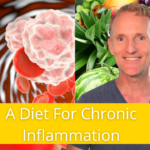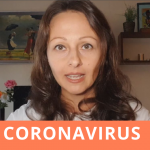Could the protein that you eat be messing up your hormones and health?
You’ve probably heard it over and over again – in order to balance your hormones, lose weight and overcome other health challenges, you need to switch to a high protein, low carbohydrate diet.
Yet, could these be the very diets that are causing you serious health challenges?
We talk about it in this video:
Is Your Protein Messing Up Your Hormones And Health?
Damaged Fertility
There was a famous study that was carried out called the Harvard Nurses Study, which followed 18,000 women. (1)
They were trying to get pregnant for 8 years and as part of the study they noted down what foods they ate.
They discovered that by adding just a single serving of meat per day, their risk of infertility increased by 30%.
So this meant that eating meat, and in particular poultry, appeared to significantly and negatively affect their ovulation.
High Phosphorus Intake
Animal protein also contains high levels of phosphorus.
And when we consume high amounts of phosphorus in our diet, one of the ways our bodies control the level of phosphorus is with a hormone called fibroblast growth factor 23.
Now, this hormone has been found to be harmful to our blood vessels and is associated with heart attacks and sudden death. (2, 3)
So eating animal protein with its high concentration of phosphorous can cause higher levels of this hormone to be produced in our bodies, which in turn raises our risk of serious health problems.
Type 2 Diabetes
There was a very large study call “EPIC study” and scientists followed over 500,000 people from 10 European countries for 12 years.
They concluded that meat, and especially processed meat, including bacon is significantly associated with the development of type 2 diabetes, which is where your body does not use the hormone insulin properly.
This is called insulin resistance. Further to this, they also found that the consumption of glucose and fructose in the diet was actually correlated with less diabetes. (4)
Kidney Damage
A study was done that very clearly showed that animal protein puts a lot of pressure on your kidneys, which was found not to be the case with plant protein.
When the plant protein was fed to the study participants, their kidneys functioned normally.
But when they were fed animal protein, then their kidneys suffered an overload reaction and animal protein caused inflammation in their kidneys. (5)
In fact, one of our clients, Nancy, in this interview shared how she overcame her kidney disorder, as well as lost weight, healed GERD, got off Statin for high cholesterol, normalized her blood pressure, skin issues and arthritis.
Cancer
Studies have shown that the milk protein called casein actually promotes the growth of cancer. (6)
Animal protein from all animal food sources is associated with increased levels of what is called IGF 1 in the human body.
The problem is that increased levels of this hormone from eating animal products is associated with an increased risk of developing cancer. (7, 8, 9).
Watch our video above to discover more!
Ready for your big health leap?
We’re excited to invite you to our FREE online masterclass.
During our training, we’ll walk you through the 5 steps our clients use to overcome hormonal imbalances and drop pounds of extra weight … whilst never restricting themselves of carbohydrates and sugar.
Don’t miss out, claim your spot here!
P.S. If you want us to help you reverse your hormonal issues, reduce or get off medication and release weight naturally – schedule your Health Accelerator Call and let’s talk about your next steps.
Sources:
(1) https://www.ncbi.nlm.nih.gov/pubmed/18226626
(2) Proteinaholic page 146. Garth Davis M.D.
(3) Proteinaholic page 158. Garth Davis M.D.
(4) Proteinaholic page 159. Garth Davis M.D.
(5) https://www.ncbi.nlm.nih.gov/pubmed/2166857
(6) GE Dunaif, TC Campbell. Relative contribution of dietary protein level and aflatoxin B1 dose in generation of presumptive preneoplastic foci in rat liver. J Natl Cancer Inst. 1987 Feb.; 78(2):365-9.
(7) TC Campbell. Dietary protein, growth factors, and cancer. Am J Clin Nutr 2007; 85:1667.
(8) D Ornish, G Weidner, WR Fair, R Marlin, EB Pettengill, CJ Raisin, S Dunn-Emke, L Crutchfield, FN Jacobs, RJ Barnard, WJ Aronson, P McCormac, DJ McKnight, JD Fein, AM Dnistrian, J Weinstein, TH Ngo, NR Mendell, PR Carroll. Intensive lifestyle changes may affect the progression of prostate cancer. J Urol. 2005 Sept.; 174(3):1065-9; discussion 1069-70.`
(9) DL Kleinberg, TL Wood, PA Furth, AV Lee. Growth hormone and insulin-like growth factor-I in the transition from normal mammary development to preneoplastic mammary lesions. Endocr Rev. 2009 Feb.; 30(1):51-74. doi: 10.1210/er.2008-0022. Epub 2008 Dec 15.









Can you still help balance hormones for those who lost their ovaries via hysterectomy?
Shari, it’s possible to dramatically improve your life, even with missing organs.